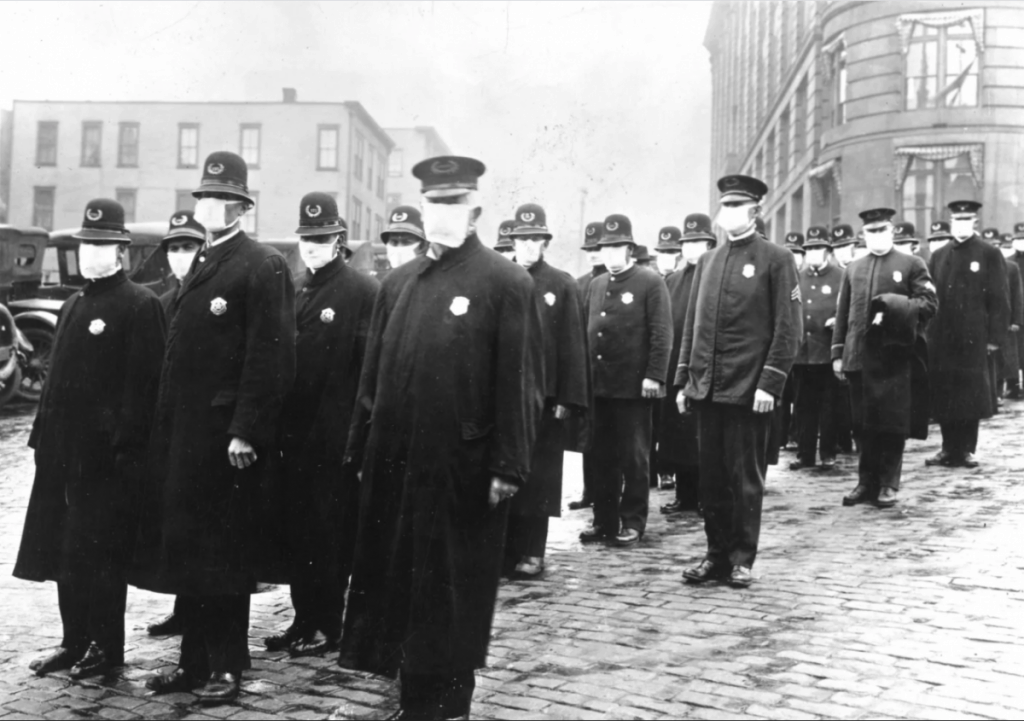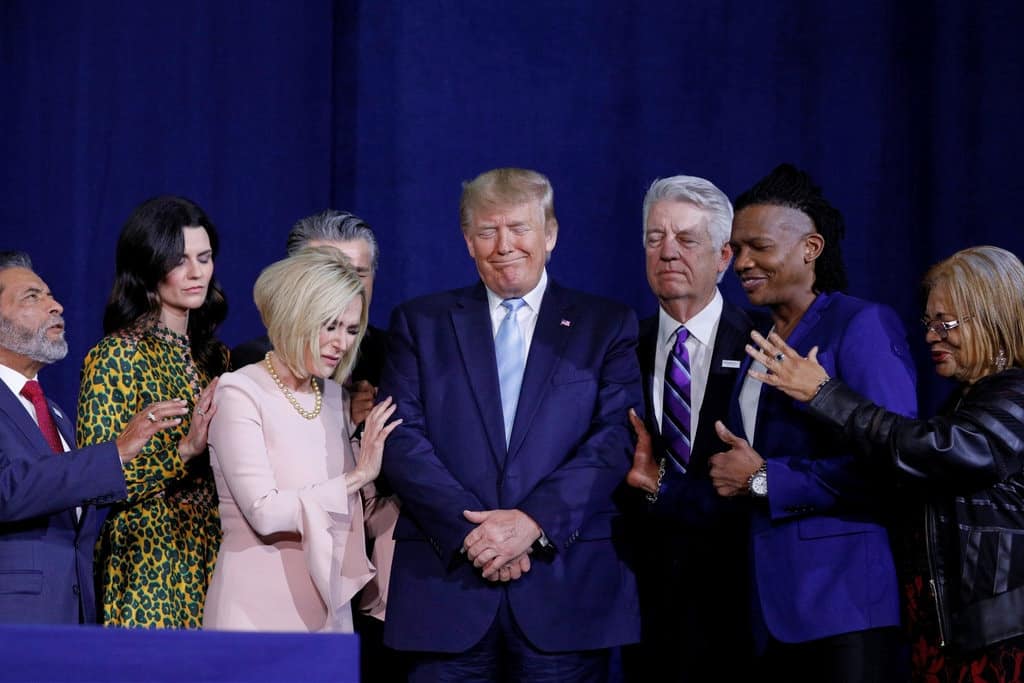
The author, a former diplomat, holds the Ram Sathe Chair for International Studies, Symbiosis International University, Pune, and is Consulting Editor, The Wire. Siasat.com is reproducing his article from The Wire. For the convenience of the readers this exhaustive exposition has been divided into three parts. Part One of the article was carried on these pages on April 19 (Saturday). Here we present the Conclusion.
The pandemic has been used cynically to demonise Muslims and scapegoat them for the calamity, just as Blacks in South Africa were blamed for the Spanish Flu and the Jews in medieval Europe for the plague.
With high levels of religiosity in the US and large memberships of non-mainstream churches, the response in the country to the virus-related restrictions has been quite diverse, with strong expressions of dissent coming from conservative Christians. A writer in an influential journal, First Things, said that the mass shutdown of society “creates a perverse, even demonic atmosphere”. He clarified: “There are many more things more precious than life. … The Eucharist itself is now subordinated to the false god of ‘saving lives’.”
On 5 April, Reuters carried several news reports saying that several fringe churches in the US would deliberately defy government orders and remain open to large congregations on Palm Sunday, the commencement of Holy Week which will culminate on Easter Sunday. A pastor was quoted as saying: “We’re defying the rules because the commandment of God is to spread the gospel.”
Another said that the church “is the last force resisting the Antichrist.” Another blamed Satan for the proposed restrictions: “Satan’s trying to keep us apart, he’s trying to keep us from worshipping together. But we’re not going to let him.” A pastor in Florida insisted that worshippers at his church would be greeted with handshakes; he explained: “[We] are open because we are raising revivalists not pansies.”
On March 30, the governor of Texas, Greg Abbot finally issued the stay-at-home order but included “religious services” among the “essential” services exempted from the order.
COVID-19 has mobilised Christian evangelists in the US, referred to collectively as “Christian nationalists” by many commentators, to question the restrictions imposed due to the pandemic. They constitute the core support-base of President Donald Trump; several of their leaders are personally close to the president, are a major influence on him, and help shape many of his political and social positions.
Some of them have blamed the gay community for the pandemic. A rightwing pastor and broadcaster accredited to the White House said in January that the coronavirus was a plague from God “to purge sin off this planet” and described the gay community as “vile” and “disgusting.”
American commentators have also noted a strong element of racism in the discourse of the Christian nationalists, particularly in viewing non-white immigrants as sources of contamination. Amidst the spreading pandemic, Trump retweeted a post he had received from a supporter: “Now, more than ever, we need the wall… the US stands a chance if we get control of our borders.” Trump then responded: “Going up fast. We need the wall more than ever.”
Pro-Trump pastors have been vociferous in his defence during the ongoing crisis. Some close to him have claimed a cure for the pandemic through miracle and prayer. Another said the president’s critics had “opened the door” to the pandemic with their displays of hate, but the pandemic would soon be over due to the collective prayer of Christians which had “overwhelmed” the scourge.
A close associate of Trump, Guillermo Maldonado, who heads “Evangelicals for Trump”, declared on March 17 that he had ordered the virus to “dissolve, disintegrate, die in Jesus’ mighty name”. He also said his church would remain open as God would save the worshippers from contagion.
In India, rightwing political leaders are having a field day in extolling the virtues of their faith. In mid-February, Swami Chakrapani, the head of the Hindu Mahasabha, a fringe Hindu nationalist movement, declared that the coronavirus was an “avatar” to punish non-vegetarians and that “God-worshipping and Gau Rakhsha believer Indians” are immune to the virus. A month later, this worthy hosted a cow urine drinking party, believing that this would ward off the coronavirus.
Not to be outdone, the head of the BJP in West Bengal, Dilip Ghosh said that with “the blessings of Hindu gods and goddesses”, the people need not fear the virus. In mid March, addressing a large religious congregation worshipping Goddess Manasa (Goddess of snakes), Ghosh pointed out: “Thousands of people are praying here. They are drinking water, taking prasad. They are not even washing their hands. … Nothing will happen to us as the Gods’ blessings are with us.”
Lessons of history
The widespread devastation caused by pandemics has impacted history in profound ways. Empires weakened by the scourge have fallen, gods and rulers have been discredited and new ones have been installed in their place. Christianity succeeded against Rome’s gods due to the faith in eternal life of the early believers and their commitment to charity and brotherliness on earth. Later tribulations in Byzantium further strengthened their faith, even when they rejected their worthless Christian ruler.
It was the Black Death, a thousand years later, that consolidated the Jew as the Antichrist and the acceptable target of Christian venom, abuse and annihilation that culminated in the holocaust of the 20th century.
But Black Death had another effect – it planted the first doubts relating to unquestioning faith in God. The historian Joshua Mark says: “People saw priests, physicians and caregivers … dying daily and lost faith in a God who would take those he had seemingly chosen to help the most in the crisis. This turning from faith would eventually focus people on the human experience rather than divine plan and would find expression in the Renaissance.”

Nearer our own time, the Spanish Flu had significant implications as well. It encouraged research in virology and the setting up of a global health agency under the League of Nations (that later became the World Health Organisation in 1946). But the historian Laura Spinney tells us that in South Africa this pandemic finally led to the institutionalising of the Apartheid system; she says: “… the epidemic gave a big spur to that legislation because white people blamed very explicitly black people for bringing in the disease without any evidence whatsoever.” This carried forward the traditional scapegoating of the demonised “Other” during periods of societal stress that continues to our time.
What does COVID-19 portend for us? Will the technology-driven human person of our century go back to business-as-usual or will s/he, alarmed by the faceless ogre that kills at will and aimlessly, re-ignite the need for the divine who alone can give us the capacity and the weaponry to confront the modern pestilence? Or, will the modern person conclude, as did her ancestor after the Spanish Flu, that the pandemic is merely a fresh challenge that can in time be tamed by scientific exploration and investigation rather than recourse to anonymous divinity?
The imposed and self-imposed isolation and social restrictions have given unexpected opportunities for contemplation – of our purpose, priority, affinity and commitment and, above all else, uncertainty, even fear. Very likely, the lesson drawn from these forced reflections will be a need for both science and the spirit, for reason alone cannot by itself fathom the mysteries of creation, life-patterns and the hereafter.
What then of India? Narendra Modi is the agent of extraordinary change – no less than a re-working of the national ethos -–driven by his personal vision, his commitment, his stamina. This endeavour rests on a revival of the greatness of the Hindu being, but it does not end there – it seeks to place the Hindu at the vanguard of global achievement – political, economic, cultural, technological. Every national department is to be re-structured, re-defined, to realise this vision, and every development needs to be addressed on the basis that it either promotes the vision or threatens it; if the latter, then it must be re-shaped or, if necessary, annihilated.
Much has been achieved so far, but the path forward is long, uncertain, even treacherous. And there are huge obstacles – the ‘Hindu’ refuses to become monolithic and monochromatic, the Muslim refuses to lose her identity and melt away. More seriously, several Hindus and Muslims seem to enjoy the composite culture that binds them rather than the exclusivist allure of Hindu resurrection.
What then is the outlook? The pandemic has been used cynically to again demonise the ‘Muslim’ and scapegoat him for the calamity, just as the Black person had been stigmatised in South Africa and before him the Jew in Europe. Several other congregations were organised in March, but only the assembly of the Tablighi Jamaat is being highlighted in the media.
This narrative of blame may appease the believer, but there are alternative stories as well. Arundhati Roy describes the response to the modern plague thus: “India revealed herself in all her shame – her brutal, structural, social and economic inequality, her callous indifference to suffering.”
But she is perhaps a hostile witness; we will know soon whether Modi, who has personalised the national combat against the virus emerges as the triumphant hero and messiah or is doomed by the sheer incompetence that surrounds his administration and is viewed as a palpable failure in delivering the vision he so convincingly held before us. If the latter, will we then move beyond the communal binary and the Indian people meld as one against division and hate?
As we contemplate the larger schema for humankind, the Bible reassures us: “there will no more death or mourning or crying or pain, for the old order of things has passed away. … Behold I make all things new.” And the poet adds his voice in Eliot’s words:
We die with the dying:
See they go and we go with them.
We are born with the dead:
See, they return, and bring us with them.
History, Eliot assures us, is a pattern of timeless moments.
Concluded

